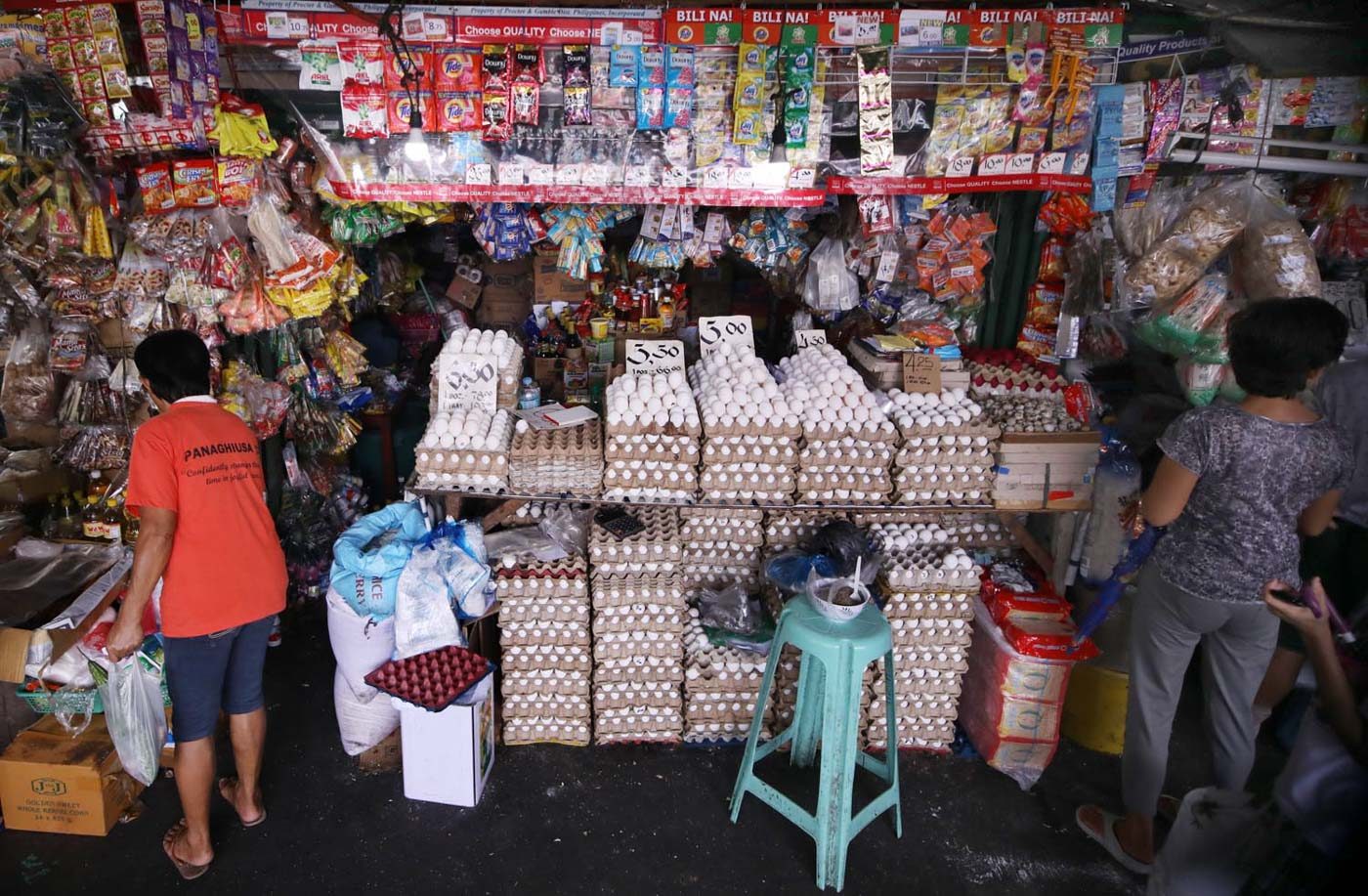SUMMARY
This is AI generated summarization, which may have errors. For context, always refer to the full article.

MANILA, Philippines – Did your grandparents ever tell you that they could buy a complete meal for only P1 back when they were younger?
Indeed, it can be quite difficult to imagine, since P1 today could only buy you a piece of candy. Food, rent, utilities, and basically everything else have gone up compared to several decades ago.
The movement of prices of goods and services over time is referred to as inflation.
How is inflation measured? The Philippine Statistics Authority (PSA) releases inflation data every 1st week of the month for the public to be aware of just how much prices have changed compared to a year ago.
Statisticians and experts measure inflation by looking at a “basket of goods” which “contain” what the typical Filipino consumes on a regular basis. (IN CHARTS: What your P100 can buy under runaway inflation)
This “basket” contains the following:
- Food and non-alcoholic beverages
- Alcoholic beverages and tobacco
- Clothing and footwear
- Housing, water, electricity, gas and other fuels
- Furnishing, household equipment, and routine maintenance of the house
- Health
- Transport
- Communication
- Recreation and culture
- Education
- Restaurants and miscellaneous goods and services
This long list of goods and their prices comprise the consumer price index (CPI). The annual percentage change in the CPI is then used to measure inflation.
What causes inflation? Inflation may be driven either by supply or demand.
Supply-driven or cost-push inflation happens when the cost of producing goods, the prices of raw materials, and wages go up. (READ: Rice prices soar as Duterte marks 2nd year in office)
In this scenario, there are fewer goods being produced due to the high costs of production, yet demand remains consistent.
On the other hand, demand-pull inflation occurs when people’s demand outpace the ability of industries to supply goods.
How does inflation affect you? Inflation means you need to pay more for the same goods and services.
One could also think of inflation as a reduction of the value of money, as consumers are able to purchase less than before. As inflation rises, the value of the peso diminishes more quickly. (READ: EXPLAINER: What is hyperinflation?)
Elevated prices of goods hit hardest those consumers who have not received salary increases over time. In effect, people have to constantly get a raise to keep up with the prices of goods.
High inflation is also not good for people who have long-term investments in banks, as it may erode the value of money.
Is inflation all bad? No. In fact, the government wants inflation, but only within an acceptable range.
For instance, economic managers want inflation for 2018 to 2020 to settle between 2% and 4%. The problem, however, is that inflation in 2018 continues to shoot up beyond the target range. (WATCH: Rappler Talk: Making sense of the Philippine economy)
Revising monetary and trade policies, as well as providing subsidies to the poor, are only some of the ways by which the government can restrain inflation within the acceptable range.
Inflation, especially when it is demand-driven, is an indicator that people have more money to spend and reflects a growing economy. (READ: BSP’s interest hike won’t address supply-driven inflation – Pernia)
The government is also avoiding deflation, or the decline of prices of goods. While it may sound good, deflation is an indicator of anemic or poor economic activity.
Low consumption slows down the economy, which would then lead to fewer jobs and opportunities. – Rappler.com
Add a comment
How does this make you feel?
There are no comments yet. Add your comment to start the conversation.